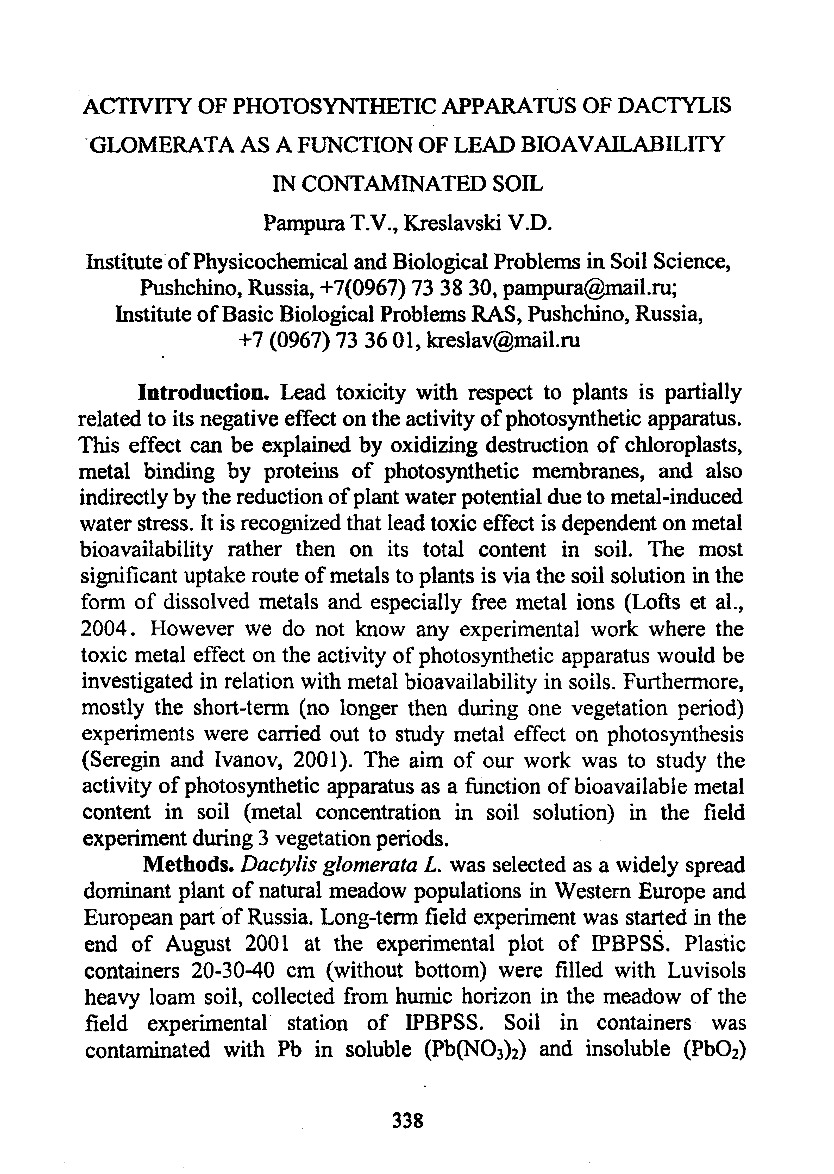

ACTIVITY OF PHOTOSYNTHETIC APPARATUS OF DACTYLIS
GLOMERATA AS A FUNCTION OF LEAD BIOAVAILABILITY
IN CONTAMINATED SOIL
Pampura T.V., Kreslavski V.D.
Institute of Physicochemical and Biological Problems in Soil Science,
Pushchino, Russia, +7(0967) 73 38 30,
pampura@mail.ru;Institute of Basic Biological Problems RAS, Pushchino, Russia,
+7 (0967) 73 36 01,
kreslav@mail.ruIntroduction. Lead toxicity with respect to plants is partially
related to its negative effect on the activity of photosynthetic apparatus.
This effect can be explained by oxidizing destruction of chloroplasts,
metal binding by proteins of photosynthetic membranes, and also
indirectly by the reduction of plant water potential due to metal-induced
water stress. It is recognized that lead toxic effect is dependent on metal
bioavailability rather then on its total content in soil. The most
significant uptake route of metals to plants is via the soil solution in the
form of dissolved metals and especially free metal ions (Lofts et al.,
2004. However we do not know any experimental work where the
toxic metal effect on the activity of photosynthetic apparatus would be
investigated in relation with metal bioavailability in soils. Furthermore,
mostly the short-term (no longer then during one vegetation period)
experiments were carried out to study metal effect on photosynthesis
(Seregin and Ivanov, 2001). The aim of our work was to study the
activity of photosynthetic apparatus as a function of bioavailable metal
content in soil (metal concentration in soil solution) in the field
experiment during 3 vegetation periods.
Methods.
Dactylis glomerata L.
was selected as a widely spread
dominant plant of natural meadow populations in Western Europe and
European part of Russia. Long-term field experiment was started in the
end of August 2001 at the experimental plot of IPBPSS. Plastic
containers 20-30-40 cm (without bottom) were filled with Luvisols
heavy loam soil, collected from humic horizon in the meadow of the
field experimental station of JPBPSS. Soil in containers was
contaminated with Pb in soluble (Pb(N03)2) and insoluble (РЬОг)
338
Научная электронная библиотека ЦНСХБ









